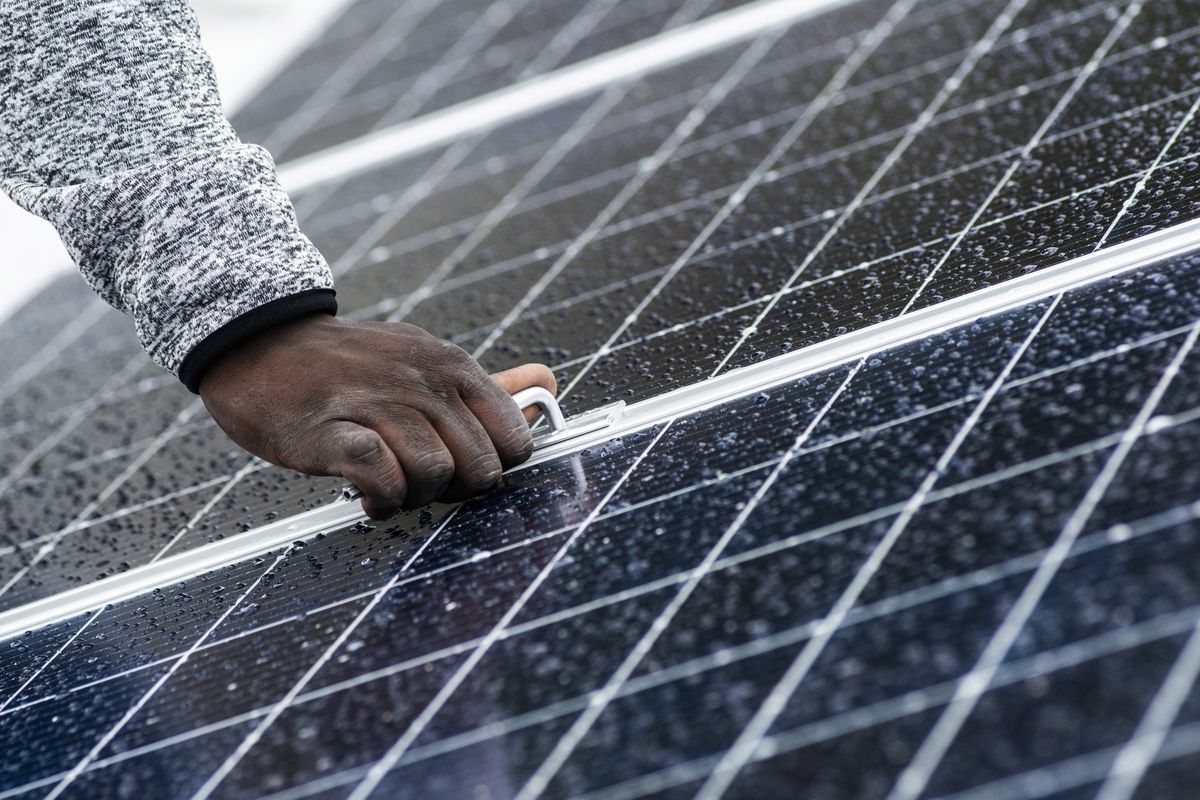When Rotimi Thomas and his two colleagues decided to pivot from installing solar systems to expanding access to solar services that could supplement Nigeria’s unstable power grid, they immediately ran into an issue: many Nigerians, particularly those from the middle class, were discouraged by the high upfront costs.
Rural electrification— subsidies in the form of micro credits that help purchase renewable energy systems like solar home systems—accommodates extremely poor Nigerians who cannot afford rural electricity. But Thomas realised that his next business endeavour would need to address the needs of Nigerians who are at risk of falling through the cracks between rural land and industrialised solar power projects. In April 2021, he and his business partners, Tomiwa Igun and Laolu Faniyi, founded SunFi, an energy fintech company that offers credit to solar service providers, who in turn offer affordable payment plans to their customers.
“There is a lot of focus on rural electrification and industrial or big commercials but no one has cared so much about how to make it easy for small families in urban areas,” Thomas, who serves as SunFi’s CEO, told TechCabal over the phone. “But we have seen this need impact because we are homegrown, we understand their pain points.”
Despite being Africa’s largest oil producer, Nigeria struggles to meet its power needs, producing 4,500 megawatts of electricity for its 200 million-strong population. South Africa, by comparison, generates 58,000 megawatts and serves a population of 60 million people.
Rural electrification subsidies power tariffs, usually in the form of micro credits that help individual households purchase renewable energy systems like solar home systems. But due to worsening electricity across the country, middle-income Nigerians in urban areas are increasingly in need of such subsidies. That is why SunFi’s focus is on middle class Nigerians, who tend to fall through the cracks between rural electrification and industrialised solar power projects.
Thomas described SunFi as a buy-now-pay-later solution for solar providers, which ultimately benefits end consumers. SunFi doesn’t manufacture or install solar panels, but it gives small solar businesses expert advice on choosing the best manufacturers in the market. By filling the credit gap, SunFi wants to eliminate the need for solar providers to seek credit from financial institutions.
After launching a demo version of its app last November, the demand for solar systems have grown to over 200%. Thomas attributed this to power grid shutdowns and fuel scarcity, which caused a huge spike in the number of people looking to switch to an alternative power supply.
“It crystallised that it was critical to go to the grassroots and tackle the problem, one petrol generator at a time,” Thomas said. “If we advanced the alternative energy systems, make them cleaner, more affordable, and smarter, IoT based (the ability of physical objects to collect and share data), at the individual decentralised level, when the grid is finally coming around in 10 to 20 years, it will be interacting with systems that can support it better.”.
SunFi is still in pilot mode, but has received requests from 20 solar system providers, and approved 7 of pilot users consisting of solar companies, solar installers, and average electricians.
Prior to founding SunFI, Thomas worked with German energy giant Siemens for 5 years in renewable energy. While he was there, he worked on the Nigerian government’s Presidential Power Initiative (PII)—a partnership between the Nigerian government and Siemens to improve access to stable and reliable power.
But through his Africa-wide job at Siemens, he realised how long it took for grid-scale renewable developments to come to market in Nigeria, Ghana, and Mozambique. Now, Thomas and his team will employ skills from their past jobs and projects to build out the SunFi model.
“ We have been a solar company. In our previous life, our own experience and interaction with end consumers informed our decision to build a solution that utilises both financial technology and energy technology to serve both end consumers, solar service providers and the investor community.”
SunFi is also partnering with Arnergy Solar, the largest solar installer in Nigeria, to expand access to more consumers. Thomas said with the company’s quality technology, like its durable lithium-ion battery and long warranties, makes them an important partner.



















